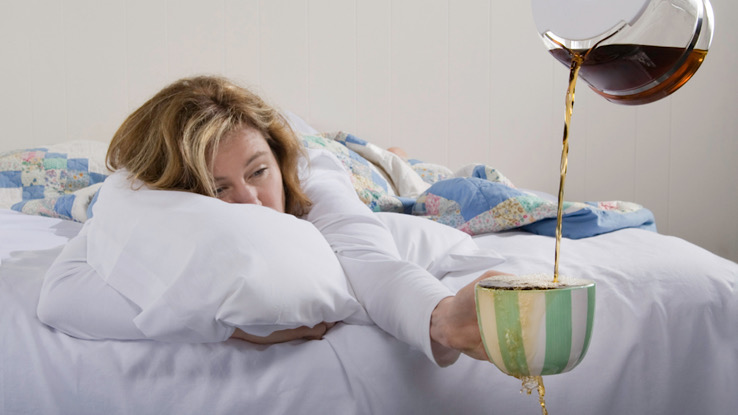
You can get caffeine from many different foods and drinks, including coffee, tea, energy drinks, candies, chocolate and ice cream. But what are the side effects of caffeine?
Did you know that more than 20,000 emergency room visits each year are caffeine-related? So while caffeine can help keep you awake, you should know about some of the side effects. In this article, you’ll learn some of the potential side effects of having too much caffeine.
Increased Heart Rate
Caffeine stimulates your brain, and so the heart needs to beat more to make sure the body can keep up with the increased activity. Try cutting back on caffeine products if you notice your heart beating faster. If you have a heart health condition, this could be bad for your health — and it is important to talk to your doctor about your caffeine intake.
Trouble Sleeping

Since caffeine is a stimulant, it keeps you alert, but it also keeps you awake. Having foods or drinks with caffeine in the evening may make it harder for you to sleep. Even if you haven’t had caffeine recently, having caffeine throughout the day may make it harder for you to fall asleep. For some people, too much caffeine results in a cycle where they don’t get enough sleep at night, so they rely more on caffeine during the day to stay awake.
Frequent Urination
Caffeine can cause you to use the bathroom more often because it is a diuretic, and diuretics help the body get rid of fluids and salts more frequently. Also, caffeinated drinks may cause you to pee more than if you have caffeine in another form, like eating a chocolate cake.
Nausea
Because caffeine is a diuretic, it can make you feel nauseous. Caffeine can also increase the acidity of stomach acid, which may upset your stomach and make you feel sick. This acidity can cause other issues as well, such as heartburn.
Headaches
Caffeine causes constant stimulation to your brain, so you may have headaches. In some cases, caffeine can cause you to have a “caffeine rebound.” Caffeine rebound means after you drink a lot of caffeine and it wears off, you may have withdrawal symptoms like a headache. If you have migraines or chronic headaches, you may want to talk to your doctor about if caffeine can worsen symptoms.
Anxiety
Caffeine can affect your mood and lead to anxiety. Because you have increased stimulation, you may feel restless or on edge. Caffeine may also clash with some of your medications, increasing anxiety. Some people may start to have signs of depression. If you feel depressed or anxious, talk to your doctor for help.
Feeling Jittery
Caffeine can overstimulate your brain, causing your muscles to twitch and spasm. There is also the possibility that this side effect may show up as a withdrawal symptom if you stop drinking caffeine.
Who Has Caffeine Side Effects?
Caffeine can affect everyone differently. If you don’t have caffeine regularly, you are likely to have side effects when you have caffeine.
- Stress
- Anxiety
- Sleeping problems
- Acid reflux
- Stomach ulcers
- Irregular heart rhythms
- High blood pressure
- Chronic headaches
- Fibrocystic disease
Most people can have up to 400 mg of caffeine each day and be okay. That is roughly 10 cans of cola or 4 cups of brewed coffee. But, if you have certain health conditions, you may want to avoid caffeine or have only a small amount each day. Some at-risk health conditions include:
Also, if you are pregnant, you should have very little or no caffeine. If you are taking any prescription medications, be sure to ask your doctor about any potential adverse interactions with caffeine.
Resource Links
- “Caffeine” via MedlinePlus
- “Nutrition and Healthy Eating” via Mayo Clinic
- “Spilling the Beans: How Much Caffeine is Too Much?” via Food and Drug Administration
- “Update on Emergency Department Visits Involving Energy Drinks: A Continuing Public Health Concern” via SAMHSA





